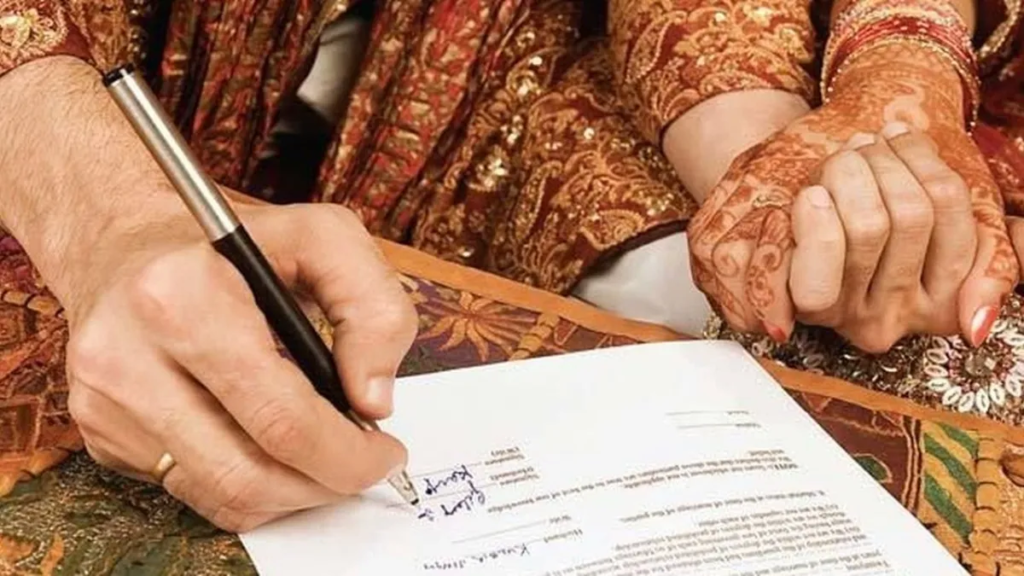An Indian High Court recently issued a significant ruling declaring a marriage between a Muslim man and a Hindu woman invalid under Muslim personal law. Furthermore, the court rejected a plea for police protection to formalize an interfaith marriage under the Special Marriage Act of 1954.
Justice Gurpal Singh Ahluwalia of the Madhya Pradesh High Court elucidated that even if the couple opted for marriage under the Special Marriage Act, it would still be deemed “irregular” (fasid) under Muslim law. Citing Sharia law, he emphasized that it doesn’t recognize the marriage of a Muslim man to a woman practicing idolatry or fire-worship.
These notable legal insights emerged during a petition filed by a Muslim man and a Hindu woman, expressing their desire to formalize their union through marriage. However, the woman’s family vehemently opposed the interfaith union, expressing deep concerns over potential societal ostracization if the marriage were to proceed. They also levied allegations against the woman, accusing her of absconding with jewelry from their household before departing to marry her Muslim partner.
In their defense, the couple’s legal representatives staunchly asserted their clients’ wish to solemnize their marriage under the provisions of the Special Marriage Act without necessitating religious conversion. They contended that such marriages should be deemed valid and legally binding, superseding the restrictions imposed by Muslim personal law.
Despite these arguments, the high court maintained its stance that the Special Marriage Act couldn’t legitimize a marriage explicitly prohibited under personal law. Additionally, the court dismissed the couple’s plea, reasoning that their steadfast refusal to embrace religious conversion or opt for a live-in relationship failed to present a compelling case warranting judicial intervention.


